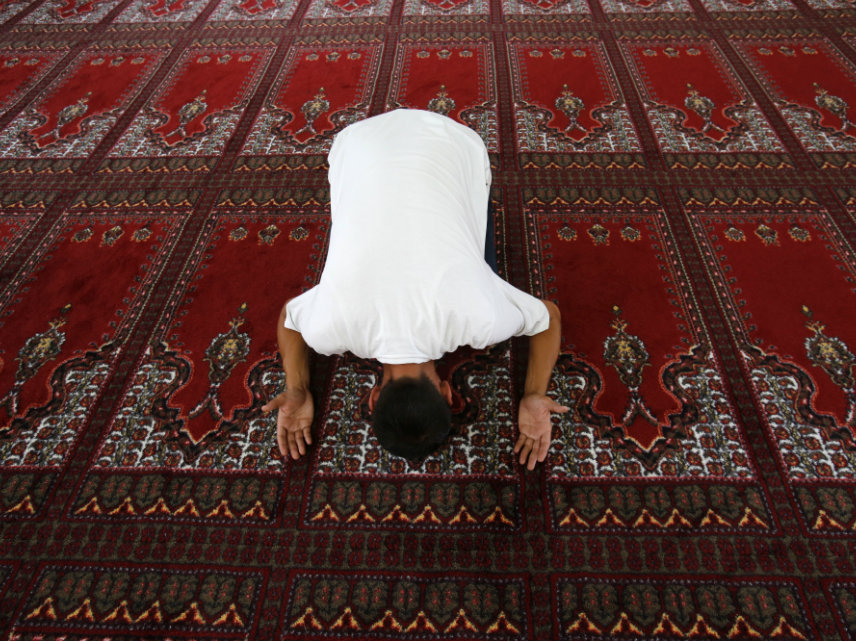Trump's Favorite 'Prayer Rug' Immigrant Story Seems Like Fake News and Shoddy Journalism
The Washington Examiner story relies on a single, anonymous source who has no evidence to support her claims. It serves only to confirm existing biases.

In a Friday morning tweet, President Donald Trump promoted a Washington Examiner article that claims ranchers are finding Muslim "prayer rugs" along the U.S.–Mexico border.
The president's tweet excerpted a portion of a quote from the New Mexico rancher at the center of the Examiner article—an anonymous woman who claims that she's found these Muslim rugs on her property.
"There's a lot of people coming in not just from Mexico," the rancher tells the Examiner's Anna Giaritelli. "People, the general public, just don't get the terrorist threats of that. That's what's really scary. You don't know what's coming across. We've found prayer rugs out here. It's unreal. It's not just Mexican nationals that are coming across."
Even a cursory reading of the story raises a series of red flags—enough of them to make you wonder why the Examiner published the story in the first place.
The sole source for the "prayer rug" claim is the rancher. Her name is withheld, we are told, in order to protect her against potential retaliation from the cartels that are supposedly responsible for bringing those Muslims across the border.
The use of a single, anonymous source should always make a reader skeptical, but it's not enough to discount the story altogether. What's really odd is that the photos and video accompanying the print story do not show any evidence of the prayer rugs that the source supposedly found. She has photos of the trash that she claims illegal immigrants left on her property, but not the prayer rugs?
Even if the anonymous rancher is telling the truth about discovering these prayer rugs, a savvy news consumer should question the rancher's story's internal logic. The Examiner is asking you to believe that a group of devout Muslims illegally immigrated to the United States by traveling to Mexico and then making an arduous overland journey into America—and that they were so devout in their Islamic faith that they undertook that entire journey with their prayer rugs, which Muslims kneel upon to say their daily prayers. It's also asking you to believe that, after carrying those rugs with them for the entire trip, they cast them aside like a piece of garbage as they passed through this rancher's property.
Of course, the story also not-so-subtly implies that any Muslim carrying a prayer rug is somehow a threat to the United States. In an article filled with unstated and implied threats, this is perhaps the most ridiculous (and certainly the most xenophobic).
Unfortunately, fear-mongering about prayer rugs is not new in certain corner of right-wing media. An infamous Breitbart story from 2014 claimed the prayer rugs had been found in Arizona near the Mexico border, but the "rugs" turned out to be nothing more than torn t-shirts. It's a shame to see that the Washington Examiner, a reasonably respectable conservative publication, fall to that level.
Trump's tweet about the piece is another shameful effort to fear-monger about the threat allegedly posed by illegal immigrants. Trump has repeatedly, and falsely, claimed that nearly 4,000 terrorists have been caught coming across the border in the past year. The actual number is six. (For more on the Trump administration's misleading rhetoric about terrorists pouring over the border from Mexico, read Matt Welch's piece here.)
The Examiner describes the author of the piece as having been "press secretary for an immigration policy group." That omits the fact that the group in question is the Federation for American Immigration Reform, which advocates not just cracking down on illegal immigration but reducing "overall immigration."
No, Giaritelli's prior job should not in itself discredit her reporting. But in this case, her reporting should discredit her reporting.


Show Comments (74)